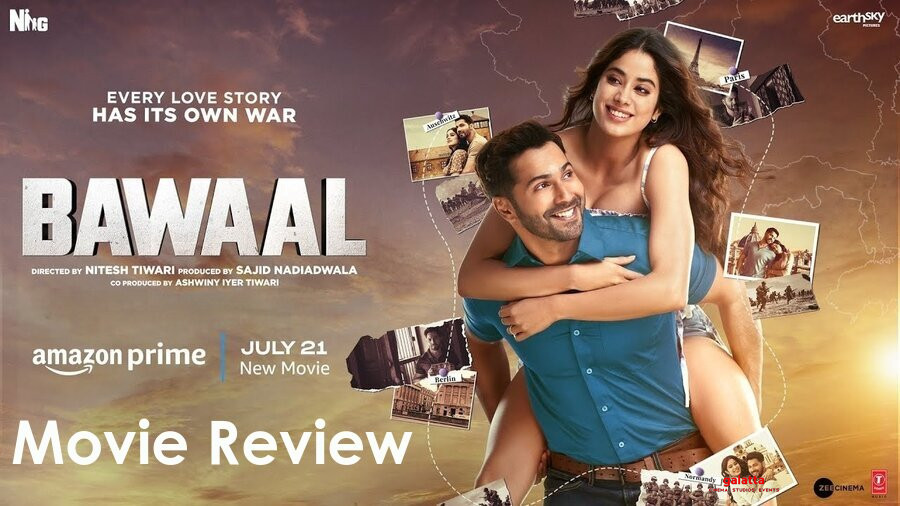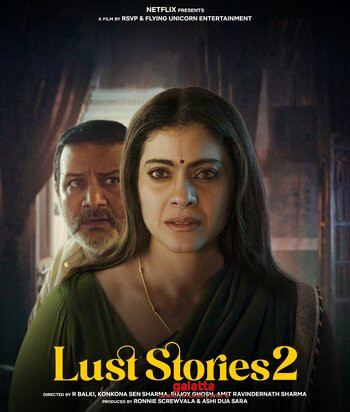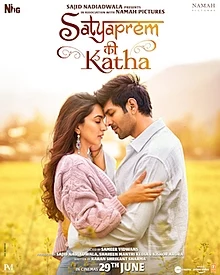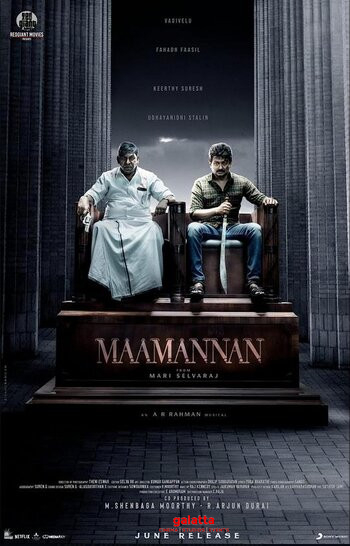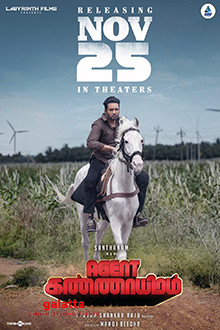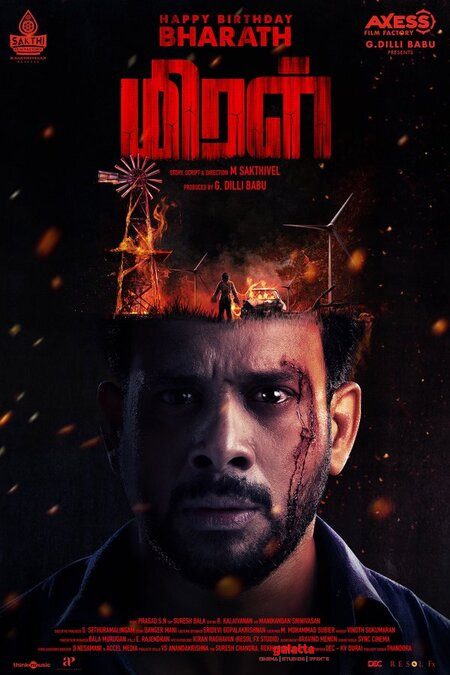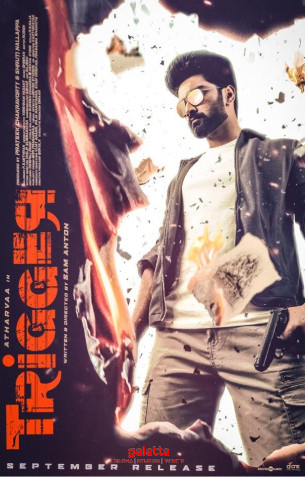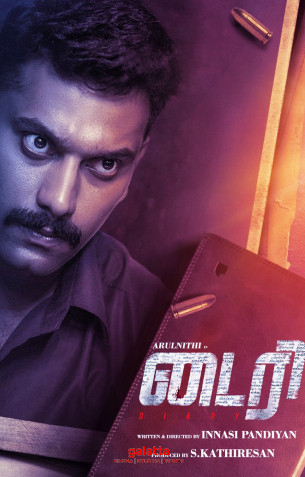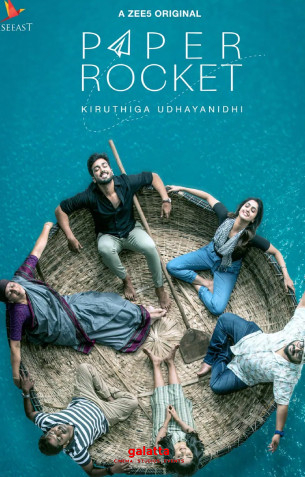Bawaal Movie Cast & Crew
In a late scene in Nitesh Tiwari's Bawaal, Ajay and Nisha (the married couple played by Varun Dhawan and Janhvi Kapoor) play a drinking-game where they reveal things about one another: favourite books, favourite films, that sort of thing. After a while, Ajay points out that they have nothing in common. Nisha, ever the optimist, asks: "But is it necessary to be in agreement all the time?" Put differently, she's asking if they cannot live happily despite their differences. Extrapolate this idea from a relationship to geopolitics, and we have this really big thought: Yes, we are all different countries, different races – but do those differences have to come in the way of peace and happiness and the basic things that would fit into a suitcase for our limited journey on this earth? Can't we all just… get along?
Let's rewind and begin with the beginning. Ajay is a cool-dude in Lucknow, and as he rides through the streets on his Bullet, the black-and-white frames turn into (somewhat desaturated) colour. This is not a bright, blingy movie – even the mandatory wedding song-and-dance looks a little faded, like an old photograph. As we will see later, there is a reason for this two-tone palette. Bawaal deals with two sets of contrasts: the past and the present, the outside and the inside. Ajay may be a preening stud on the outside, but inside, he is damaged goods. It's ironically funny that, in a fit of rage, he calls the epileptic Nisha a "defective piece”. At least her "defect" is on the outside, and something that can be controlled with medication. His defect is deep-rooted. He has carefully cultivated - through a web of lies – an image of being that cool-dude. In reality, he knows he is a loser, and so that image is everything to him.
So we know that the story (by Ashwini Iyer Tiwari) is going to humanise Ajay, and peel off that facade. But the means to this end is most interesting and very ambitious. Ajay is a history teacher, and through a series of incidents, he ends up (with Nisha) travelling through the important World War II cities in Europe, and from there, he sends videos to his students about Anne Frank's house and the Normandy invasion and the Auschwitz concentration camp and so forth. But of course, Ajay is the one who's really being educated. The things he keeps complaining about are nothing compared to the horrors that have unfolded in these places. The selflessness of these war heroes makes him reflect on his own self-centred behaviour. The trip makes him feel things for the first time. Nisha gently teases him that he, of all people, has become emotional and philosophical. Bawaal says that if we crawl out of our shell and see the wider world, we will become better people.
And for a long time, the film says this without actually “saying” it. The screenplay is structured around a series of wars. First, we have the cold war between Ajay and Nisha. They are married in name only. He is terrified that if he takes her out and she gets an epileptic fit, then his "image" will go for a toss. Then, we have the "war" that Ajay instigates by slapping a student, who happens to be the son of a legislator. The powerful man invades the school and launches an offensive on Ajay. Finally, there is the "war" Ajay has within him: the constant battle between who he is and who he wants to be seen as. Just like Hitler ostracised non-Aryans, Ajay ostracises anyone who's a danger to his image, and this includes Nisha. Varun plays the early parts of Ajay in the larger-than-life Judwaa mode, and slowly slips into the vulnerable Sui Dhaaga zone as he becomes grounded by the gravity of life. He really gets across the child-man that Ajay is.
But it's Janhvi who grounds the narrative with a remarkably restrained performance. (And, of course, she is helped hugely by the way her character is written.) Before marriage, Nisha was independent and outgoing. She loses some of that vim in Ajay's home, but rediscovers her zest for life in Europe. If Ajay is War, Nisha is Peace. She is at peace with everything, including her "defect". She doesn't hide it, and she does not want to stop living her life because of it. She slaps Ajay when he mocks her condition: there is a bit of "war" in her, too. But mostly, Nisha is a pacifist. She harbours some hope that things will still work out between them. It's a nice touch that her mother suggests divorce, and she decides to wait. She is an optimist. Like John Lennon, she wants to… give peace a chance.
Some of the film's loveliest passages have Ajay and Nisha finally talking. She is the kind who reads Tolstoy and Tagore, so she is more evolved in her thoughts than Ajay is. She slowly tells him things – for instance, that the alienation he feels in France is not all that different from the alienation a woman feels when she enters her husband's home. Like Satyaprem Ki Katha, this is broad, solid storytelling from the time Bollywood was called "Hindi cinema" – and like that earlier movie, the issues are touched upon gently, with even bits of comedy thrown in. The comic portions (involving a Gujarati family) don't feel off because, until the last half-hour, Bawaal treats its material with a wonderfully light touch. (The only serial offender is a melodramatic solo violin.) The progression of places is gradual, from Paris to Auschwitz – that is, from the least horrific to the most. And Ajay's "education" is gradual, too. In Paris, he slowly begins to see Nisha as an ally. And the biggest "image factor" he has to let go occurs in a concentration camp, where he realises that he has been as cruel to Nisha as the Nazis were to non-Aryans.
Some viewers are surely going to be repelled by this whole conceit, and they may say that the film reduces World War II to a self-help marriage manual. But I bought it because I had a similar experience in Southern Vietnam, when I crawled through the claustrophobic, barely-lit tunnels built by the Vietcong soldiers. These things have a way of rewiring your very soul and altering your perspective – and the only big issue I had with Bawaal is that the last half-hour turns into a clunky melodrama, hammering home points that were elegantly hinted at earlier. The story narrated by an Auschwitz survivor is so on-the-nose that he seems to have made it up just to get Ajay and Nisha back together. It feels utterly contrived. "Every relationship goes through its own version of Auschwitz" the man says. Suddenly, we are in a Message Movie.
But like in Tarla, another mellow-drama produced by Nitesh and Ashwini Iyer Tiwari, the overall picture comes through. There’s a rare kind of simplicity and elegance here. Cinematographer Mitesh Mirchandani does some excellent work, as do the writers (well, except for that final stretch). Ajay's conversion is utterly convincing. At first, he warms up to Nisha simply because he needs someone to talk to. And slowly, he sees her for who she is, and he also sees himself for who he is. As for Nisha, the image of her smiling at the sights of Paris through her car window is something that has stayed in my mind. Despite being stuck in a rotten marriage, she has found a reason to be happy. That, really, is the attitude that wins wars.
